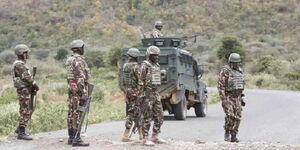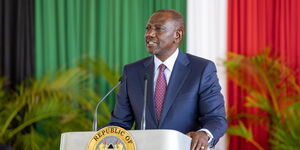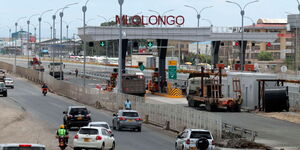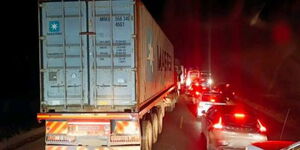The government has directed all Kenyan ambassadors stationed in the Middle East to start to register Kenyans residing in the region as tensions escalate due to the Israel-Hamas war, which has now also affected Lebanon.
Foreign Affairs Cabinet Secretary Musalia Mudavadi issued the directive on Thursday, 17 October, while providing updates on the precarious situation facing Kenyans in Lebanon.
Mudavadi highlighted the urgent need for the registration, noting that the government seeks to establish an accurate count of Kenyans in the volatile region, especially as the conflict's scope threatens to widen. "They should not gamble; it’s not a game out there," he remarked, warning of the dangers.
“The government is also aware of a larger conflict in the Middle East and has requested Kenyan Ambassadors in the region to conduct swift registration of Kenyans in their jurisdiction,” Mudavadi told the press.
In July, Mudavadi disclosed that 316 Kenyans have died in Gulf countries over the last 12 years, with most fatalities in Saudi Arabia, highlighting risks for overseas workers.
Despite these deaths, over 80,000 Kenyans worked in Saudi Arabia in 2022, while the Gulf region hosted more than 170,000 Kenyans, driven by the demand for labour.
Overall, 416,058 Kenyans are employed abroad, pointing to the scale of migration, but concerns persist over working conditions and the need for stronger labour protections.
The Cabinet Secretary also revealed that 35 Kenyans have already been evacuated from Lebanon, with further evacuation efforts underway despite significant challenges. The Kenyan government is discouraging citizens from travelling to conflict-prone areas in the Middle East until the situation improves, citing safety concerns.
Mudavadi assured that the government remains committed to the protection of Kenyans abroad, emphasising that a multi-agency task force is working in coordination with embassy officials in Kuwait to ensure safe evacuations. As of now, 7,119 Kenyans have registered for evacuation from Lebanon, and two more batches are expected to arrive in Kenya over the weekend.
With limited flight availability to and from Beirut, Mudavadi explained that the number of evacuees in each batch depends on the seats secured, ranging from 10 to 30. "We are competing also with other nations undertaking similar exercises," he noted.
The evacuation exercise, however, faces financial hurdles due to the high cost of insurance for flights entering the high-risk region. Mudavadi disclosed that the Treasury has committed an initial Ksh100 million towards supporting the efforts, and the government is exploring additional measures.
"This is one of the dilemmas," Mudavadi stated. "Kenyans go but they don’t indicate where they are going; they use their channels and sometimes we have to fish for them to come forward."












